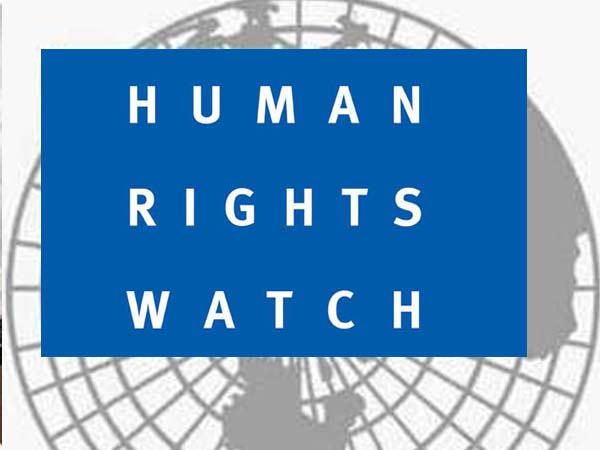Human Rights Watch: Haftar-led army in east Libya guilty of summary executions in Al-Abyar

Armed groups loyal to Libyan National Army forces (LNA) appear to have summarily executed dozens of men in the LNA-controlled town of al-Abyar, Human Rights Watch said today.
On October 26, 2017, local police forces discovered the bodies of 36 men, all of them executed, close to a main road south east of al-Abyar, 50 kilometers east of Benghazi. Authorities transferred the bodies to a hospital, where families came to identify them. Relatives of six of the victims told Human Rights Watch that the men had been arrested on various dates by armed groups loyal to the LNA in Benghazi or in other areas controlled by the LNA.
This incident comes after a series of unlawful killings and summary executions in Benghazi that prompted the International Criminal Court (ICC) prosecutor to issue an arrest warrant against an LNA special forces commander on August 15.
Following the discovery of the 36 bodies in al-Abyar, Gen. Khalifa Hiftar, the LNA chief, ordered the military prosecutor of the eastern region on October 28, to conduct an investigation . The LNA and the military prosecution have yet to announce any investigation results.
“The Libyan National Army’s pledges to conduct inquiries into repeated unlawful killings in areas under their control in eastern Libya have so far led nowhere,” said Eric Goldstein, deputy Middle East and North Africa director at Human Rights Watch. “The LNA will be condoning apparent war crimes if their pledge to investigate the gruesome discovery in al-Abyar proves to be another empty promise.”
Human Rights Watch met with relatives of two of the victims in Tripoli and interviewed relatives of four others by telephone in October and November. All of them said that their family member had been arrested earlier in 2017, some only two days before the bodies were found, and had not been heard from again.
All said their relative bore one or more gunshot wounds, and that their hands were tied behind their backs, based on information they obtained from family members who identified the bodies at the Benghazi Medical Center, also known as Hospital 1200. Most interviewees did not have access to a medical report. All relatives also said that armed groups from Benghazi prevented families from putting up tents in front of their Benghazi homes to receive guests during the traditional three-day mourning period.
The relatives said that all six victims were civilians seized from their homes, in the presence of their families, by armed groups linked with the LNA. None of the armed groups presented an arrest warrant. Human Rights Watch reviewed multiple lists containing a total of 25 names of the men found at al-Abyar, but could not verify which were civilians and which, if any, were fighters affiliated with forces opposing the LNA.
Human Rights Watch also reviewed photographs of the bodies, including two apparent group photos of the victims, posted on social media sites by unidentified sources on October 26. The group photos show at least 35 bodies in an open field. Researchers also reviewed close-up photos of 23 of the victims and corroborated them with the group photos and with photos sent by relatives.
Most of the 23 victims photographed in close-up had their hands tied behind their backs with plastic handcuffs. Each was lying in what appeared to be a pool of blood. The majority had visible gunshot wounds to the head, neck or face.
How to submit an Op-Ed: Libyan Express accepts opinion articles on a wide range of topics. Submissions may be sent to oped@libyanexpress.com. Please include ‘Op-Ed’ in the subject line.
- False Oaths: Ruling and Redemption - January 09, 2025
- Libya’s election body partners with USAID to boost polls - January 09, 2025
- Lebanon faces critical test - January 09, 2025


